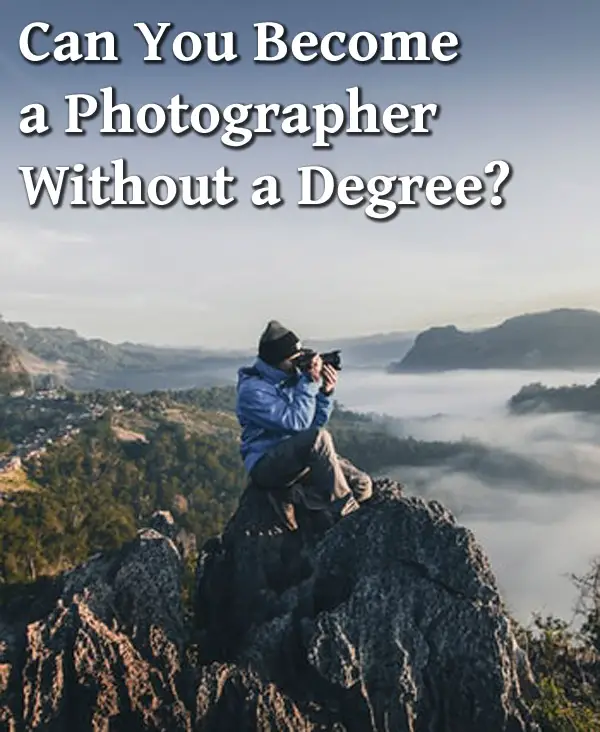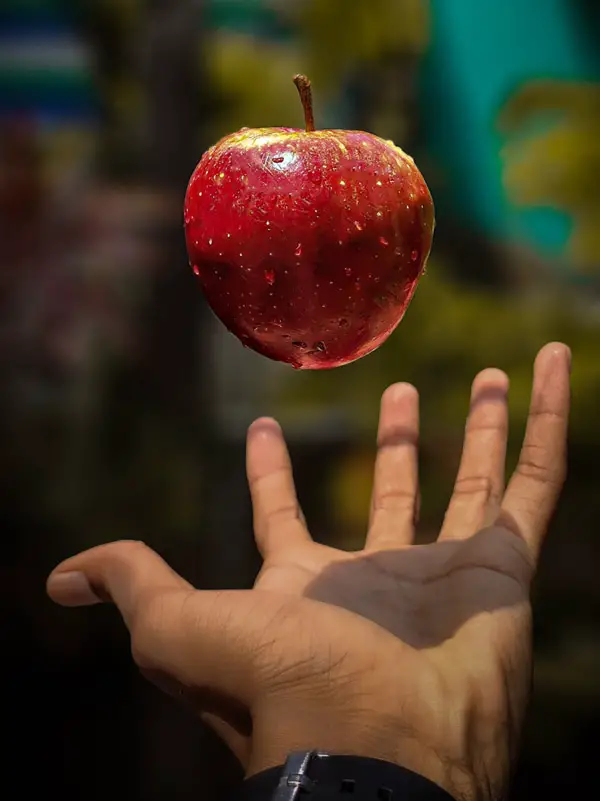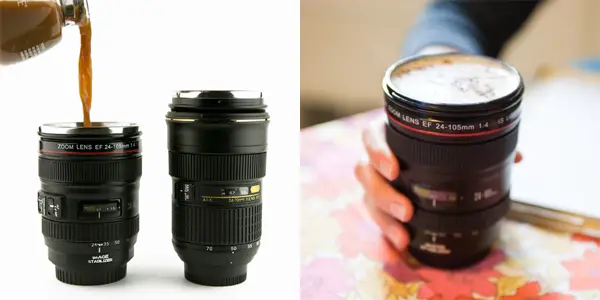“Should I go to college and earn a photography degree, or not?” This is a question that photography beginners can relate to, especially in this era when unemployment amongst college graduates is pretty high. “Education is the key,” they said, but that reality may differ for individuals in various professions. If you want to be a doctor, a lawyer, a pilot, an accountant, or an engineer, college may not be something you cannot opt-out of.

Other professions simply rely on individuals’ skills or talent that no degree papers can give you. Could photography be one of them?
There are no set qualifications, including attaining a degree, that defines whether one should work as a photographer. Some photography types, like medical photography, require one to have the proper educational qualifications. One can choose to pursue a photography degree to gain an added advantage or hone their photography skills without going to college. The choice lies with the individual and depends on the photography type they want to pursue.
Are you willing to pay skyrocketing college fees, sacrifice sleep to study, deal with exam anxiety and strict professors to earn a photography degree? Is it worth the effort? This article has all the answers you need to make that crucial decision. Read on to find out more about this noble profession.
What Education Is Required to Be a Photographer?
Photography entails taking images of various objects or people to record them visually. Photographers are key role players in capturing the perfect moments and sealing memories in timeless photos. Creativity and technical skills majorly come into play in this industry, hence the debate about what a photography degree can add to the equation. There are no standard education requirements for one to become a photographer, but formal education supplements other aspects of this career that no skills can bring.
Formal education can help photographers learn to market themselves appropriately, source the right job opportunities, manage finances, and pitch for better salaries. A photography program educates individuals on the right tools, exposure methods, lighting tips, photography foundations, and lighting tips.
Also, some photography industry areas, for instance, medical photojournalism, require one to have a specialized photography degree to qualify for that job. Other jobs require Bachelor of Fine Arts or Bachelor of Arts photography degrees. These degrees are important to hone one’s skills essential for commercial photography. The programs may also offer additional skills essential in the photography industry, for instance, painting or drawing.
How Are Photographers Evaluated?
Photographers are evaluated based on their ability to utilize their skills to capture excellent photographs. They should take photos by fulfilling critical photography elements, including light, moment, composition, color, and distance from the subject. These elements are detailed below:
Light
Light is an important element for photographers to illuminate an object or a scene. They use natural or artificial light for photos, considering the direction and quality to ensure the best outcome. A good image can tell the photographer intentionally used light to create the perfect mood that somebody else can interpret in a photo easily. An evaluator will judge this aspect by determining if the photographer used the lighting properly to accentuate the image’s textures. Also, the evaluator examines whether the photographer used light to add an interesting twist to the image using shadows and highlights.
Moment
Another element used to evaluate a photographer is creating a strong moment in a photograph. The photographer should capture all the essential elements in a picture, creating an image that tells a captivating story. Creating a strong moment involves highlighting a particular action or subject and showing how it interacts with other surrounding features. The final image should wow the viewer with the creativity that went behind creating it.

Composition
Composition is also an evaluating factor in photography. Composition entails putting together objects in a frame and emphasizing certain parts so they become the focal point in that image. The photographer needs to understand what the viewer expects in the final image. For instance, there should be a clear subject, good framing and positioning, and no distracting elements in the image for the composition to be perfect.
Color
Color can convey the photo’s mood for viewers to interpret as gloomy, mysterious, sad, or exciting. The photographer should use color to create strong images that evoke emotions among viewers. Some colors convey warmth. Others convey peace, while others tell happy moments.
Distance From the Subject
The photographer’s distance to the image subject can affect the overall effect of impact the photo has on viewers. The photographer should determine the focal length they need to shoot the image, helping them get all the important parts within the photo frame.
Types of Photographers That Don’t Need Degrees
Amateur and self-employed photographers don’t need degrees to exercise their photography passion. It doesn’t take any education, more so a degree certificate, for an individual to know how to take a selfie or capture images of certain objects or people. Also, some traveling and franchise portrait studio employers may prefer to hire photographers with no photography degrees. Rather, they would prefer to train the photographers to learn how to operate the equipment, interact with customers, and take the right poses to capture the right angles.
Photography degrees are only required in areas where technical or scientific skills are necessary, such as medical photography. That doesn’t mean anyone else cannot earn the degree, no. You can still pursue the degree for your benefit if you desire to.
When a Degree Might Be Bad in Photography
While a degree sounds like a great idea to help expand your photography knowledge, it may have some downsides that some people may not be prepared for. First, earning a college degree doesn’t come cheap. You will need to pay expensive tuition fees, work on various projects, and go for school tips-all requiring financial resources. Also, some of the subjects you learn in the photography course may not be useful to that career. You may have to learn other photography-unrelated subjects in the curriculum and lose focus on your main goal-honing your photography education.
Knowledge, Expertise, and Experience in Photography
Knowledge, expertise, and experience are important factors employers look for when hiring competent photographers. You need to show employers that you are well-suited for the job with the right skills and experience. Your resume needs to have “Skills” and “Experience” sections where you detail your photography skills, including attention to detail. Also, the resume gives the potential employer details of your experience using various photography equipment and software.
Have a portfolio of your best samples to share with potential clients and demonstrate your style and the image types or quality you produce. Having a portfolio and resume packages you as a professional photographer with the right knowledge, expertise, and experience.
Running a Photography Business
Running a photography business can be either a walk in the park or an absolute nightmare. The two outcomes depend on whether you know your way around managing the business effectively or you will make costly mistakes that will be the end of your business. As a business owner, you are responsible for handling the business’ finances, customer service, employee payrolls, marketing, and networking.

Also, you need to run the business like a professional. Potential clients need you to be on time, conduct yourself properly on set, invoice correctly, and communicate effectively. Always leave a positive first impression to secure repeat clients. Ask for testimonials and recommendations from your clients to grow your client base. Referrals are one of the most effective ways to gain more customers without incurring marketing costs.
Another important aspect of running a business is to use social media to showcase your work. Social media can be a powerful marketing tool if used correctly. As your fan base on social media grows, so are your potential clients. Be clever in utilizing your online presence and branding your business to land major photography gigs, securing your business’ success.
For more information on how to run a successful photography business, check out this video:
Earnings Potential With vs. Without a Photography Degree
Photographers receive different salary scales based on several factors such as the photography type, the client’s nature, geographical location, and work experience. Even when one doesn’t have a photography degree, they can still earn a decent income from their craft, as long as they are good at what they do.
For instance, commercial photography is arguably one of the highest-paying types of photography. Individuals practicing commercial photography can earn over $100,000 every year. That is a pretty impressive figure, considering that you can practice many photography types, including commercial photography, with or without a photography degree.
How Many Years Does It Take To Become a Photographer?
There is no specific rule dictating the years it takes for one to become a photographer. Some are self-taught and can take a few months to several years to perfect their craft. Others go to school to have formal photography education and start practicing as professional photographers after graduating. Whichever way, individuals can still practice their photo-taking skills as professionals at whatever pace they are most comfortable with.
Bottom Line
No rule dictates photographers should have degrees to practice, except for specialized industries like medicine. Individuals can learn photography on their own and make profitable businesses out of their passion for photography.
To learn photography on your own, here are some awesome tips.








